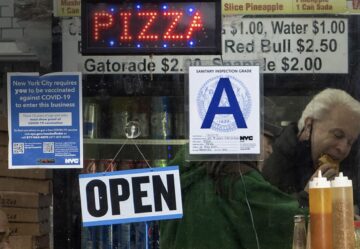Walter Frick in Aeon:
 What happens to the job market when the government raises the minimum wage? For decades, higher education in the United States has taught economics students to answer this question by reasoning from first principles. When the price of something rises, people tend to buy less of it. Therefore, if the price of labour rises, businesses will choose to ‘buy’ less of it – meaning they’ll hire fewer people. Students learn that a higher minimum wage means fewer jobs.
What happens to the job market when the government raises the minimum wage? For decades, higher education in the United States has taught economics students to answer this question by reasoning from first principles. When the price of something rises, people tend to buy less of it. Therefore, if the price of labour rises, businesses will choose to ‘buy’ less of it – meaning they’ll hire fewer people. Students learn that a higher minimum wage means fewer jobs.
But there’s another way to answer the question, and in the early 1990s the economists David Card and Alan Krueger tried it: they went out and looked. Card and Krueger collected data on fast-food jobs along the border between New Jersey and Pennsylvania, before and after New Jersey’s minimum wage increase. The fast-food restaurants on the New Jersey side of the border were similar to the ones on the Pennsylvania side in nearly every respect, except that they now had to pay higher wages. Would they hire fewer workers in response?
‘The prediction from conventional economic theory is unambiguous,’ Card and Krueger wrote. It was also wrong.
More here.
